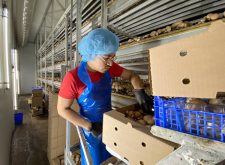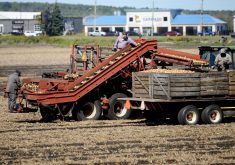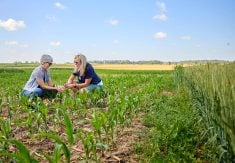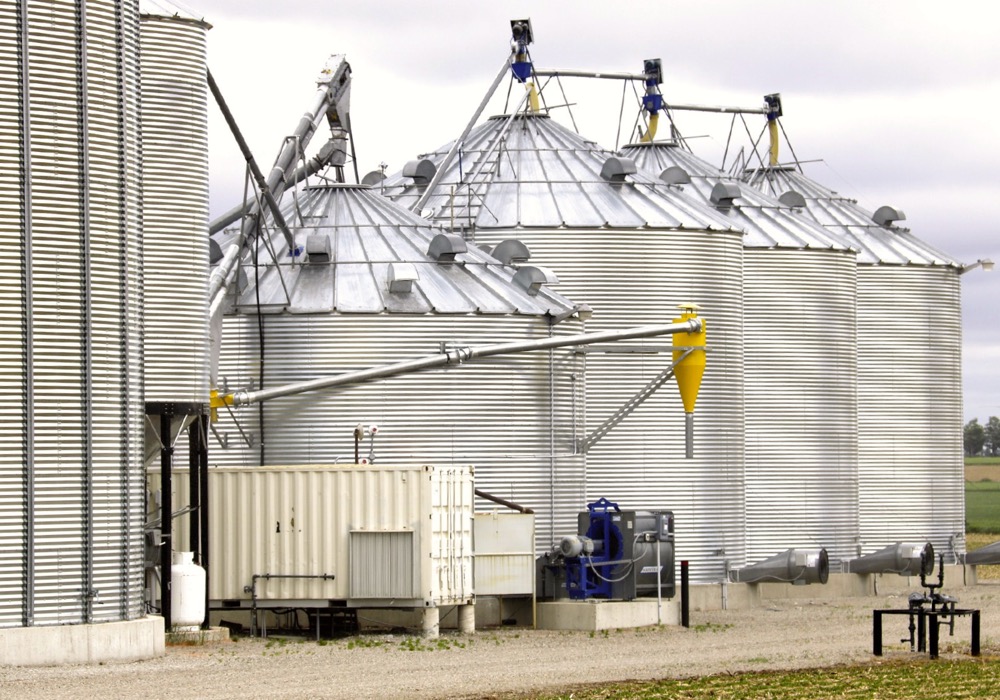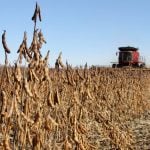Recent political upheaval has driven a resurgence in buy-local sentiment among Canadians. But it has also prompted Canadians to rethink their travel plans, with more travellers choosing staycations and avoiding travel to the United States.
Why It Matters: Tourism across the border has plummeted on the Canadian and American sides, taking a toll on businesses.
Agritourism operators are developing strategies to help ensure that political strife doesn’t affect their bottom line this summer. Some are banking on a weaker Canadian dollar to keep Canadians in Canada and push Americans to cross the border and visit their operations.
Read Also
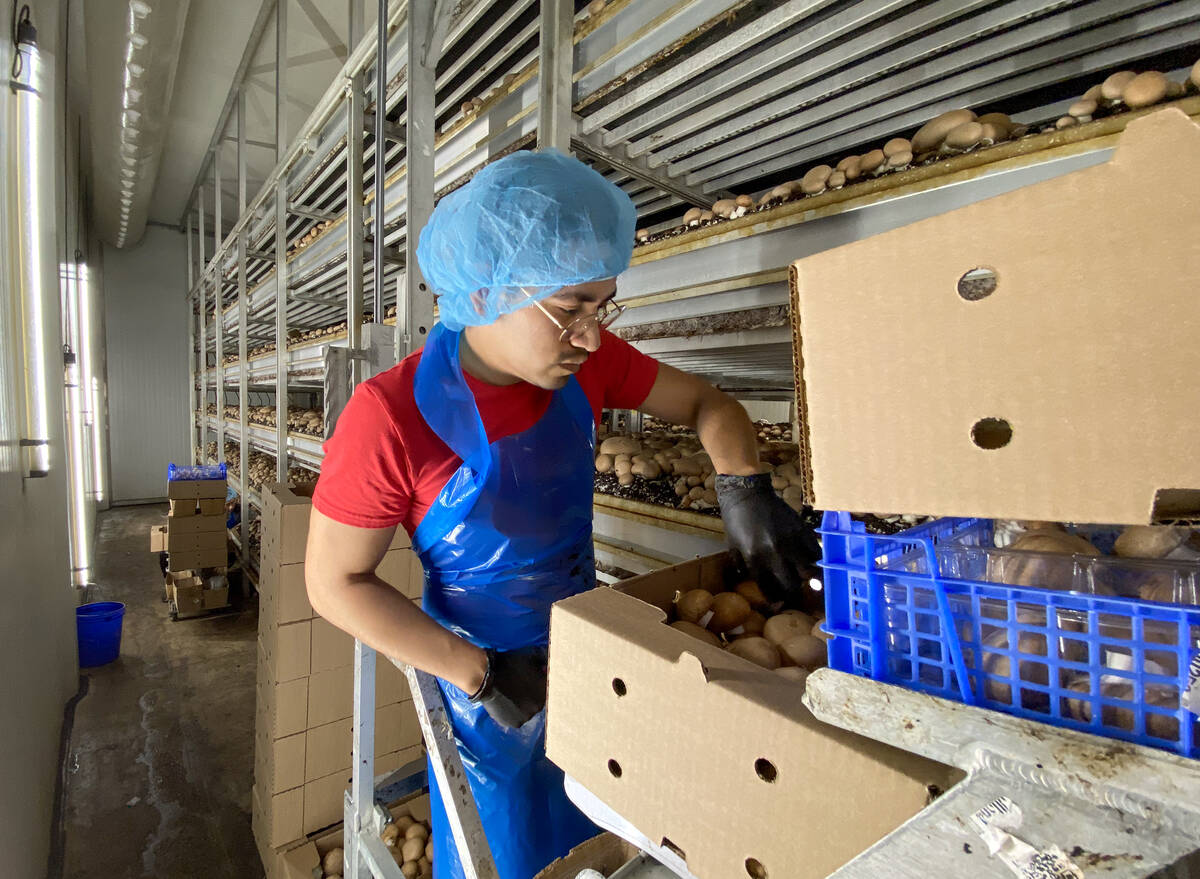
Ontario’s other economic engine: agriculture and food
Ontario Federation of Agriculture president, Drew Spoelstra, says Ontario’s agriculture and agri-food sector should be recognized for its stability and economic driving force.
Kevin Vallier, chief executive officer at Agritourism Ontario, says that despite it being early in the travel season, he has seen a marked jump in support of local agritourism.
“While it is early in the season, support for local farms, particularly those who have diversified into the agritourism space, has increased. Not only with people visiting farms, but also from people showing support online. There is definitely a resurgence to support local businesses,” he said.
Vallier added that there was no clear indication yet that there has been an increase in the number of tourists visiting from the U.S., with all signs pointing in a positive direction.
“The summer will give a better indication, but we certainly welcome our American friends,” he said. He noted that for the first time, NAFDMA (North American Farm Direct Market Association), an international agritourism association, is doing their annual bus tour in Ontario in July.
“I think this speaks volumes to the quality of operations we have here in Ontario. People are literally coming from all over the world to visit these farms. Many of those on the tour will be American.”
Efforts are also underway to educate and create awareness among Ontarians to support their local farms. This is being done through social media campaigns.
“We want visiting a local farm to be top-of-mind when families are considering their weekend activities. We also work closely with other associations and organizations to help promote agritourism,” he said.
The role of Agritourism Ontario is to promote agritourism and connect families to farms as a big picture, rather than promoting individual farms. As a result, he said, the organization shares special events or activities happening on farms on the organization’s social channels.
Vallier said the organization is also working on developing an agritourism app that will make it easier to connect families to farms.
“It won’t just be a laundry list of farm names and contact info but rather a very interactive app that will allow families to plan trips, see what is in season, see what is available near them, check the weather, have educational agriculture games for kids and more,” he said.
Looking ahead, Vallier said it is difficult to predict what the agritourism season will look like in 2025. Inflation, tariffs and economic tensions are leaving many agritourism operators in the balance.
“I think the biggest challenge is to keep visiting a farm top-of-mind for families when considering their activities. We don’t want this to be just a trend but build it into the culture of Ontario,” he said.
At Clovermead Farm, located north of Alymer, farm operator Chris Hiemstra remains optimistic about this summer. He said he and his family are “being true to our authentic families’ farm business, steady on with the foot lightly on the gas pedal.”
The farm provides education to families and school children about bees and honey products. He says the farm is already hosting 10,000 children for bee education tourism. In the summer, the program opens to the general public.
Most of these guests are coming from within a two-hour car ride of the farm. Hiemstra said Clovermead has 65 family activities that are included with an admission ticket to the farm. “Every year we try to improve the farm in some way to provide good value for families that are visiting for the day. This year it is Farmer’s Playland,” he said, adding that some guests are coming for the first time while others are purchasing season passes to come repeatedly over the five months that the farm is open.
“This summer we will promote that our farm is celebrating its 50th anniversary to people on social media, and hopefully we will see some modest growth this year again. We hid 50 metal bees across the farm for guests to find.”
The wet spring affected early tourism numbers, however, Hiemstra says overall numbers are close to what they were in 2024. One trend Hiemstra is noticing is that visitors have less discretionary money to spend.
“We see that our spend per average customer is down from where it has been in previous years. I can understand, as the general costs of products at the grocery store, the hardware store and all consumer suppliers are up. Consumers are getting stretched from every direction with higher living costs,” he said.
Hiemstra remained uncertain about the impact current tensions between Canada and the U.S. will have on tourism numbers this year. He was not sure how politics and shifting perspectives will impact travel plans, but suspected U.S. visitors will still make the trek to Canada.
“Niagara Falls and Toronto would land the foreign visitors, but we are a family farm in the middle of nowhere, so we depend almost solely on local families doing day trips. We are a bit too far off the beaten path; maybe some day AI will steer foreign guests down the back roads, and they will come,” he said.
Hiemstra has been working to advocate for local farms through his membership in Ontario Agritourism. This includes involvement with helping move the new agritourism act through its development over the years.
“It was passed in December 2024, and it will help protect farmers against frivolous lawsuits; however, each individual farmer will still have responsibilities, just like a ski hill needs to protect guests from harm and risk,” he said.
Additionally, the farm is a member of Elgin Tourism, London Tourism and Southwestern Ontario Tourism. Collectively, he said, individual memberships help organizations thrive, represent, and move industries forward in a progressive way with education and information sharing amongst members.
Hiemstra believes a cool head and steady movement in a positive direction will counteract any political strife directed towards tourism on both sides of the border.
Thomas Wilson, proprietor and cider maker at Spirit Tree Estate Cidery in Caledon, is also confident in the future of local agritourism. He said his business is already planning for increased traffic this year. Additionally, the tariffs imposed by the U.S. have increased the number of inquiries about summer season visits.
“We realized that there was going to be an increase in traffic this year. To prepare we upgraded our kitchen line to meet higher demands, increased our social media budget, and increased our outdoor seating,” Wilson said.
So far, there has been a 25 per cent increase in Wilson’s sales in April and May and a 30 per cent increase in visitor traffic. He does believe, however, that the tariffs will have an impact on U.S. visitors coming to the cidery.
“More specifically, the politics that are driving the tariffs. The U.S./Canada relationship has been greatly damaged by the tariffs. We are seeing an increase in foreign tourists as they are looking for somewhere other than the U.S. to visit,” he said.
To encourage more visitors, the cidery has increased its social media presence with a focus on attracting foreign visitors in 2025. As a board member of Agritourism Ontario, Wilson’s energies are focused on promoting all its members as great destinations to visit this summer/fall.
Wilson adds that the cidery has seen an increase in LCBO sales. Additionally, he said there are serious negotiations to remove all the trade barriers between provinces, which he believes will open up a national market for small producers like Spirit Tree.
“There are markets we could not access before due to provincial tariffs and taxes. With the federal government working on an east-to-west infrastructure plan and new foreign trade agreements, I am very optimistic for a stronger, healthier Canada,” he said.




